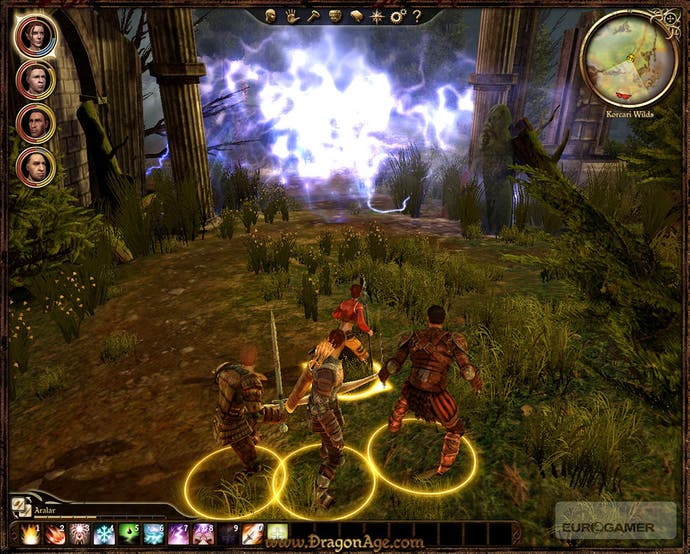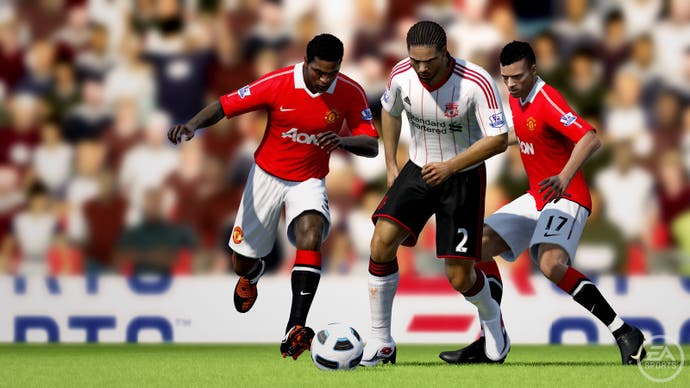Willing and Able?
Is the industry doing enough for disabled gamers?
It's a familiar dilemma. That moment of decision as you weigh up the empty game case in your hand before taking it to the till. You've waited for this game. You're excited about this game. But will it be any good? Are you about to waste your money on something that will be gathering dust before the week is out?
We've all been there, but consider another complication. What if, rather than just worrying about whether you'll enjoy the game, you had to take into account the idea that you might not be able to play it at all?
That's the situation that faces many disabled gamers. It's an issue the games industry is slowly taking notice of.
Subtitles and audio description can allow deaf and blind people to enjoy film and television, ramps and lifts can make cinemas accessible to wheelchair users, but gaming is not a passive entertainment. The interactive aspect throws up dozens of problems for many different types and levels of disability.
Modern game controllers can baffle most non-gamers, with their triggers, bumpers and buttons. Add limited mobility or motor function and they become complex hurdles to be negotiated. Even simple fixes, such as full subtitling that conveys more than just cut-scene dialogue, is relatively rare.
And that's without considering the games that are rendered unplayable for colour blind gamers through poorly considered use of red and green. Rather than one easily identified barrier there are dozens, each varying in importance depending on the player.
That doesn't mean that there aren't some fairly simple decisions that could be made early in the development process to cast the accessibility net a little wider.

"The biggest obstacle when speaking to developers is getting them to realise that there are millions of disabled gamers who are kept out of many titles due to accessibility issues that could be easily fixed," says Steve Spohn. He's the associate editor of AbleGamers, a US-based website that reviews games both in terms of their critical value and their accessibility for people with all kinds of disabilities.
It's not even as if studios are consistent within their own product portfolios. The PC version of Bioware's Dragon Age scored highly on the AbleGamers scale for its generous configuration options, comprehensive subtitles and simple mouse-based control.
Mass Effect 2, however, scored low for its small fonts, restrictive control schemes and colour-based mini-games. "The difference between the two games is night and day," says Spohn.
A gamer since the age of six, Steve has Spinal Muscular Atrophy. It's a rare version of Muscular Dystrophy that progressively weakens the muscles governing movement.
Despite what would seem to be insurmountable obstacles to enjoying today's fast, complex, detail-oriented games, Steve believes that for the vast majority of disabled gamers, a series of small changes to the development process could make a huge difference.
"Developers fail to consider the amount of people they could be selling games to by adding some very simple options in early development such as subtitles, key mapping, and changeable fonts," he explains.
"Accessibility options such as subtitles, reconfigurable controllers and keys, changeable fonts and colours, and colour blind options can all be added for a very little additional development cost or time."

According to Spohn, such changes would not necessarily impact the experience for non-disabled players. "Gamers with disabilities would have much more access to mainstream titles if developers would add options that could be turned on as needed.
"Options such as those listed would not otherwise affect the game unless used by the gamer. All games can become accessible to everyone with the right combination of help from developers and accessible technology."
As is the case for most advocate groups, Steve hopes for a day when organisations like AbleGamers are no longer needed. "I really want to believe that developers will start adding accessibility willingly in the early development cycle of games," he says.
"But until we convince developers and gamers of all types alike that these types of accessibility can be added without hindering the games, accessibility options will continue to be left out over cost concerns or general misunderstandings."
One organisation working with developers to try to ensure this happens is Special Effect. Counting Eurogamer's very own dandy media highwayman Johnny Minkley among its directors, this UK charity aims to focus ideas and understanding in research and development, to help all gamers enjoy their pastime.








